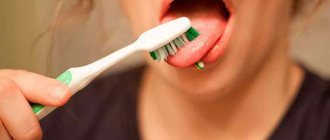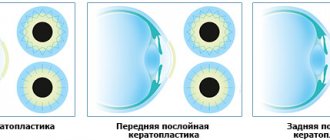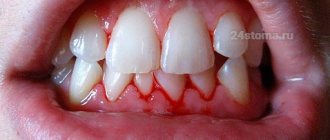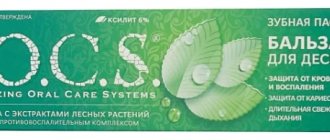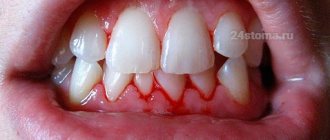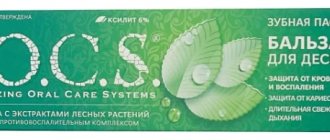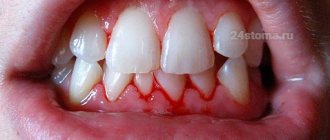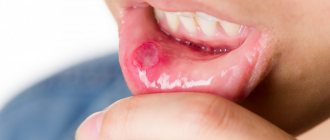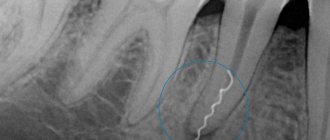Nutrition for periodontal disease should be healthy, varied and nutritious. With proper nutrition, the disease will not worsen, and acute periods will not recur, the gums will be healthy and strong.
Periodontal disease is a systemic disease of the periodontal tissues. The problem provokes bleeding, gradual resorption of bone tissue, the teeth become mobile and fall out over time. In order to prevent complete loss of teeth, it is necessary to modernly treat periodontal disease, and then follow the principles of proper nutrition.
Use of mumiyo for the treatment of periodontal disease
Periodontal disease is a common disease that can even lead to tooth loss. But not everyone knows how effective mumiyo is for periodontal disease. But this safe natural remedy can help in the fight against the disease in question even in its last stages! It is only important to choose the right mummy and use it correctly.
An effective treatment regimen for periodontal disease using mumiyo, honey and milk
You need to take 0.2 g of mumiyo and dissolve it in warm milk and honey, maintaining a ratio of 1:20. You should drink this “cocktail” twice a day for 25 days (and once before bed). And to ensure maximum effect, it is additionally recommended to carry out local treatment of gums using a 5% aqueous solution of the product in question - simply apply this solution to damaged gums using a cotton swab.
First, due to periodontal disease, the sensitivity of the gums changes, then the gums swell and begin to hurt, and over time they bleed, and the teeth become loose. But the use of mumiyo for periodontal disease can effectively solve the problem at any stage of the disease. However, it should be noted that you should not use tablets for treatment, but exclusively natural mumiyo.
Our store
Treatment with mumiyo
Shilajit is an effective folk remedy for many diseases, including dental ones. In particular, mumiyo is also used in the treatment of:
- stomatitis;
- gingivitis;
- periodontitis.
For periodontal disease, mumiyo is used quite often. It is recommended to rinse your mouth with mumiyo solution. Preparing a rinse solution is quite simple; you need to dissolve 2 g of mumiyo in 100 g of boiled water. You should rinse your mouth with this solution twice a day, morning and evening. To enhance the effectiveness of treatment, you should also take 1 teaspoon of solution orally.
You can also make gum applications using mumiyo solution. To do this, 5 g of mumiyo must be diluted in 100 ml of water, and a cotton swab soaked in the solution must be systematically applied to the inflamed gum.
Recipes for using mumiyo for periodontal disease
Mumiyo perfectly helps with periodontal disease due to its unique anti-inflammatory, antibacterial and wound-healing properties. This product has a positive effect on gum tissue, relieves inflammation, destroys pathogenic bacteria, strengthens gums and improves tissue metabolism. Therefore, using natural mumiyo for treatment, you can achieve an amazing positive effect - the most important thing is to correctly prepare the medicine based on it. And we will tell you how to do this below.
An effective recipe for the prevention and treatment of periodontal disease in the initial stages
There is another way to improve the condition of your gums, get rid of bleeding and avoid dental problems - you need to rinse your mouth with a solution prepared based on mumiyo. Making such a solution is very simple - mix 5 g of Altai mumiyo with 100 ml of warm water, shake it thoroughly and rinse your mouth regularly in the morning and before bed. Moreover, the used solution must be spat out - under no circumstances should it be swallowed.
Electrophoresis using a 4% solution of mumiyo
An effective way to treat periodontal disease is also electrophoresis using a 4% mumiyo solution. In this case, the current strength should vary within 2 - 5 μA, and the duration of the procedure will be 20 minutes. Moreover, for a complete cure, the patient must complete the entire course - 10 procedures, 1 per day. And these procedures should be carried out by a professional doctor.
Mumiyo for pain in the gums
Also, to relieve pain in the gums, you can use ordinary dry mumiyo, after kneading it with your fingers. In this case, you will need to place a small piece of a natural product on the affected gum and, without rubbing it or dissolving it, wait 20 minutes - during this time the mumiyo will soften naturally and be absorbed into the affected tissue, restoring them and destroying pathogenic bacteria.
Thus, it is obvious that there are many recipes for natural medicines based on mumiyo designed to combat periodontal disease. And if you encounter the first signs of the disease, hurry to use these recipes so as not to lose absolutely healthy teeth due to gum disease.
Drug therapy with drugs
Let’s make a reservation right away: there is no universal cure for periodontal disease that would cure the disease after the first dose. Treatment is a long process. However, there are many effective drugs for periodontal disease, the systematic use of which helps to cope with the signs of the disease and achieve maximum relief for the patient.
Drug treatment of periodontal disease is selected by the dentist depending on the stage of development. In the early stages of the disease, tablets are most effective. Among the most commonly prescribed tablets are antibiotics and propolis-based drugs. Antibiotics help to cope with pathogenic microorganisms and relieve the inflammatory process; propolis-based preparations actively help strengthen the gums, relieve the inflammatory process, and have an antiseptic and analgesic effect.
Dentists often prescribe medications that have immunomodulatory and restorative effects. With periodontal disease, there is often a general deterioration in the patient’s health and a decrease in the body’s defenses. Therefore, taking vitamins is an integral part of modern treatment methods.
Symptoms of low hemoglobin
Although different types of anemia have different causes, their symptoms are very similar. Here are the frequent complaints of patients with low hemoglobin, that is, with iron deficiency anemia: fatigue, weakness, fatigue, dizziness, pallor, headache, feeling of cold, numbness of the limbs, shortness of breath, feeling of lack of air, increased heart rate, chest pain.
Most often, anemia manifests itself as pale skin, often with moderate yellowness, weakness and fatigue, and sometimes with decreased concentration. Shortness of breath and rapid heartbeat appear. You can also notice external signs of anemia: a person looks pale and lethargic, he exhibits some “oddities” in behavior: a desire arises to eat chalk, he begins to like unpleasant odors.
In older people, angina attacks may occur and become more frequent, and in young women, menstrual irregularities may occur. The usual explanations for this are: “tired”, “stress in the family and at work”, “lack of sleep”, “overworked”. Meanwhile, quite often these are signs of anemia.
Diet for periodontal disease
The main goal of a diet for periodontal disease is to saturate the body with vitamins and minerals that would help strengthen the gum tissue. The diet should include special foods:
- Solid food
It is solid foods that provide the so-called natural training of gums and teeth. But here you need to stick to the “golden mean”, that is, eat solid foods in moderation: apples, carrots, cucumbers, meat. You should avoid nuts and too hard grains.
But in case of acute periodontal disease, hard foods should be avoided, as they damage soft tissues and cause continuous bleeding of the gums. Include pureed foods and more liquid dishes in your diet.
- Dairy and fermented milk products
“Milk” is enriched with calcium, which is important for the formation of healthy gums and teeth. And fermented milk products activate the gastrointestinal tract, saturate the body with useful substances that are necessary for natural tissue regeneration. Kefir, fermented baked milk, yoghurts, cheese, cottage cheese, sour cream must be included in the daily diet. But you should avoid sugar; you can add a little honey instead.
- Citrus
They contain a large amount of vitamin C. Oranges, lemons, grapefruit, tangerines are welcome. Drink tea with lemon, which also has a tonic effect.
A diet for periodontal disease involves saturating the diet with fruits, vegetables, and dairy products. For protein, seafood, fish, and lean meats are recommended. Everything that is heavy and difficult for the body to digest should be excluded, including alcoholic and low-alcohol drinks.
Drinks recommended for periodontal disease:
- mineral water without gas (minimum 1.5 liters per day);
- weak green tea;
- compote of their fresh fruits or dried fruits;
- yoghurts;
- uzvar;
- jelly.
Minerals for periodontal disease
In addition to vitamins, gums and teeth need the following minerals:
- calcium;
- zinc;
- copper;
- iron;
- selenium.
Calcium is a “building element” for teeth and gums. Traditionally, calcium is found in milk, cheeses, yogurt, and sour cream.
Zinc takes part in the regenerative processes of bone tissue. Contained in legumes, beef, lentils, seafood.
Copper is necessary for healthy hematopoiesis, as well as the strengthening of iron in the body. High copper content is found in bread, potatoes, and liver. To ensure copper is absorbed better, it is recommended to include fermented milk products in your diet.
Iron helps enrich the body with oxygen. It is found in buckwheat, liver, beans, and beef.
Selenium is found in foods such as beans, peas, lentils, broccoli, barley, and nuts.
What vitamins should I take if I have periodontal disease?
To combat gum damage, it is necessary to saturate the body with vitamins. Here are the most important groups:
- Vitamin A - helps restore the epithelium, activates regeneration processes. A large amount of vitamin A is found in broccoli, carrots, pumpkin, blueberries, black currants, apricots, spinach, and liver.
- Vitamin E – is directly involved in the metabolic processes of the body. It is found in corn, vegetable oil, and rose hips.
- Vitamin K – takes part in blood clotting processes. Contained in spinach, parsley, cilantro, dill, cauliflower, green tomatoes. It is very important if it is necessary to prevent bleeding gums - a clear and first sign of periodontal disease.
- Vitamin B6 – helps strengthen blood vessels, improves mineral metabolism in the jaw bones. Contained in yeast, grains, legumes.
Along with healthy foods that contain vital vitamins, dentists recommend taking vitamin complexes - a ready-made set of useful components that will help prevent the development of periodontal disease and significantly improve health.
Not recommended products for periodontal disease
- sweets (sweets, chocolate, desserts, cakes, cookies) – it contributes to the destruction of hard and soft tissues of the oral cavity;
If you have periodontal disease, you should not eat viscous sweets (marshmallow, caramel, toffee), which stick to the tooth enamel, and the remains of such food are difficult to clean out with a brush. Such products provoke the formation of plaque and carious lesions.
- flour (buns, cookies, white bread) - these products are better replaced with bread, products made from wholemeal flour;
- fast food, soda, chips, crackers - foods that are poorly digested create problems in the gastrointestinal tract, which definitely affects the condition of the teeth;
- black tea and coffee - they negatively affect the condition of tooth enamel and soft tissues.

